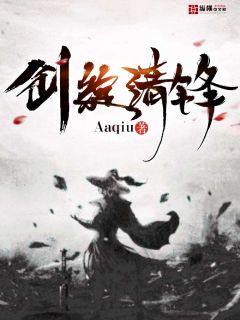
文章摘要:本文探讨曼联球员逛街引发的争议,聚焦球迷对其专注度与职业态度的质疑。从社交媒体影响、比赛表现、俱乐部形象以及职业榜样角度深入分析,揭示球员行为如何影响其职业形象与球迷关系。
---
1、社交媒体的反应
球员逛街的照片和视频往往会迅速在社交媒体上传播,引发球迷和媒体的广泛关注。这些平台成为球迷们表达观点和情绪的主要渠道。一些球迷对球员在比赛前夕或关键时刻逛街感到愤怒和失望,认为这种行为显示出他们对职业生涯的不重视。
然而,也有人认为球员有权利享受个人生活,并且这些照片可能只是个别时刻的缩影,不应过度解读。
尽管如此,社交媒体仍然是反映球迷情绪和舆论压力的敏感平台。
2、比赛表现的影响
球员的表现直接影响到球迷对其职业态度的评价。如果球员在逛街后表现不佳,这种行为往往被放大为职业道德和专注度的象征。
许多球迷会将球员在场上的表现与其在场下的行为联系起来,认为逛街活动可能分散了球员的注意力,导致比赛状态不佳。
然而,也有球员能够在私人生活和职业生涯之间取得平衡,表现出色的案例。
3、俱乐部形象与管理
俱乐部对球员的管理和指导在此类事件中显得尤为重要。俱乐部可以通过制定明确的行为准则和管理政策来引导球员的行为。
一些俱乐部可能会对球员的社交活动设定限制,以确保他们的专注度和职业态度不受影响。
同时,俱乐部在处理这些事件时的公开表态和态度也会对球迷产生重要影响。
4、职业榜样的角色
作为职业球员,他们不仅仅是球场上的表演者,还是社会的榜样和领袖。他们的行为和决策对年轻球迷尤为重要,因为年轻球迷往往会把他们视为偶像。
因此,球员在公众场合的行为需要慎重考虑,以确保不会对年轻球迷产生负面影响。
在逛街引发争议后,球员如何调整其公众形象和职业态度,将直接影响其在球迷中的声誉和认可度。
总结:
曼联球员逛街引发的争议凸显了球迷对其专注度与职业态度的关切。社交媒体的广泛传播加剧了这种关注,比赛表现的差异也加深了球员行为的解读。俱乐部在管理和塑造球员形象方面扮演了重要角色,而球员作为职业榜样的责任更是不可忽视的。综上所述,球员们需要在个人生活和职业生涯之间找到平衡,以维护其在球迷心中的形象和信誉。
文章摘要:俄罗斯足球历史悠久而辉煌,从苏联时代到现代,涌现出众多足坛巨星。本文将从历史传承、现代巨星、挑战与机遇、未来展望四个方面深入探讨俄罗斯足坛的发展与前景。
1、历史传承
俄罗斯足球历史可追溯至19世纪末,早期的俱乐部与联赛奠定了基础。苏联时代,足球在政治与文化的交汇中蓬勃发展,出现了许多传奇球员如科洛瓦廷、伊万诺夫等,他们不仅在国内赛场上大放异彩,还在国际赛事中赢得了荣誉。
随着苏联解体,俄罗斯足球经历了混乱与重建期,但仍保留着传统与技术上的精湛,例如尤里·卢日尼科夫等球员的崛起。
新时期,俄罗斯联赛的兴起与国际化程度的提高,为俄罗斯足球注入了新的活力。
2、现代巨星
俄罗斯足球在当代仍有众多巨星。如安德烈·阿尔沙文、阿列克谢·米兰钦科等球员,他们不仅在俄罗斯联赛中表现出色,还在欧洲比赛中展现了自己的实力。
此外,女子足球领域也崭露头角,如奥尔加·沃罗诺娃等球员在国际比赛中取得了突出成绩,为俄罗斯足球增添了光彩。
现代俄罗斯足球以其技术和战术的创新,以及球员个人能力的提升,赢得了越来越多的国际关注。
3、挑战与机遇
尽管如此,俄罗斯足球也面临着诸多挑战。例如基础设施建设的不足、青训体系的不健全等问题,限制了俱乐部和球员的发展。
此外,俄罗斯足球在国际赛场上的竞争力也需进一步提升,特别是在大型赛事中的表现,仍有差距需要弥补。
然而,俄罗斯足球面临着巨大的发展机遇,国内市场潜力巨大,国际化程度不断提升,可以吸引更多国际球星和投资。
4、未来展望
展望未来,俄罗斯足球有望在多个方面取得进展。首先是基础设施与青训体系的改善,促进年轻球员的成长与培养。
其次是加强国内联赛的竞争力与吸引力,提升俱乐部的管理水平与运营能力。
最后是国际化发展战略的深化,通过更多的国际交流与合作,提高俄罗斯足球在全球范围内的影响力与竞争力。
总结:
俄罗斯足球在历史的积淀下,拥有丰富的人才和潜力。面对挑战与机遇,通过改革与创新,俄罗斯足球有望在未来取得更大的成就和进步。
俄罗斯足球的发展既是国内体育发展的一部分,也是全球足球格局中的重要力量,值得期待其在未来的光辉表现。
Certainly! Here's the structured article about S. Devrij, a Dutch defender, focusing on his football career and technical style.
**Article Abstract:**
Stefan de Vrij, renowned for his defensive prowess and tactical acumen, exemplifies the modern Dutch defender. From his formative years to international acclaim, his journey unfolds through a blend of strategic insight, defensive resilience, and leadership on the field. This article delves into his career trajectory, technical attributes, tactical impact, and the broader influence of his playing style within contemporary football.
---
1、Early Career and Development
Stefan de Vrij's early years in football laid the foundation for his future success. Born in Ouderkerk aan den IJssel, Netherlands, on February 5, 1992, he displayed promise from a young age. He joined the youth academy of Feyenoord Rotterdam, where his defensive abilities quickly stood out. De Vrij's positional awareness and composure under pressure were evident even in his formative years, attributes that would define his career.
His progression through Feyenoord's ranks was marked by consistent improvement in both technical skills and tactical understanding. By the time he made his first-team debut in 2009, he had already established himself as a reliable central defender. De Vrij's ability to read the game and initiate attacks from the backline showcased his versatility beyond defensive duties.
As he continued to mature, De Vrij became a pivotal figure in Feyenoord's resurgence in Dutch football. His leadership qualities began to shine through, earning him the captain's armband at a young age. This period not only solidified his status as one of the top defenders in Eredivisie but also caught the attention of European clubs scouting for defensive talent.
2、Technical Skills and Defensive Prowess
De Vrij's technical prowess as a defender sets him apart in contemporary football. His exceptional ability to time tackles and interceptions with precision reflects his astute reading of the game. Known for his aerial dominance and strong positional play, he combines physicality with tactical intelligence seamlessly.
His passing accuracy and distribution from the backline are crucial in building play from defense to attack. De Vrij's proficiency in initiating attacks through long balls and short, incisive passes adds a dynamic dimension to his defensive role. This technical finesse not only stabilizes his team defensively but also contributes significantly to offensive transitions.
Moreover, his adaptability across different defensive systems highlights his versatility. Whether operating in a back four or three, De Vrij's understanding of defensive lines and covering spaces remains consistent, a testament to his tactical flexibility and football IQ.
3、Tactical Impact and Leadership
De Vrij's tactical impact extends beyond his individual contributions. His ability to organize and communicate effectively on the field enhances defensive cohesion. His leadership qualities, honed over years of experience, guide younger teammates and influence team strategies during matches.
Within the Netherlands national team setup, De Vrij's presence has been instrumental. His performances in major tournaments such as the UEFA European Championship and FIFA World Cup underline his ability to thrive under pressure. His partnership with other defenders and coordination with the goalkeeper exemplify his role as a defensive linchpin.
Off the ball, De Vrij's anticipation and reading of opposition movements allow him to neutralize threats effectively. His awareness of defensive transitions and quick decision-making contribute to his team's overall defensive solidity.
4、Legacy and Influence in Modern Football
Stefan de Vrij's career trajectory and technical acumen have left a lasting impact on modern football. His journey from Feyenoord to prominent European clubs like Lazio and Inter Milan signifies his international stature as a defender. Beyond his club achievements, De Vrij's role in the resurgence of Dutch football on the global stage underscores his influence.
His style of play, characterized by intelligence, composure, and defensive reliability, serves as a benchmark for aspiring defenders worldwide. De Vrij's ability to evolve with the tactical demands of the game reflects his dedication to continuous improvement and professional excellence.
In conclusion, Stefan de Vrij's career illuminates the essence of a modern-day defensive stalwart. His technical mastery, tactical astuteness, and leadership qualities have not only earned him accolades but also inspired a new generation of defenders to emulate his success.
Stefan de Vrij stands as a testament to the enduring value of defensive excellence in football, shaping the narrative of defensive play in contemporary football.
总结:
Stefan de Vrij's career highlights his exceptional technical skills, tactical acumen, and leadership on and off the field. His influence extends beyond his clubs to the broader football community, setting a high standard for defenders worldwide.